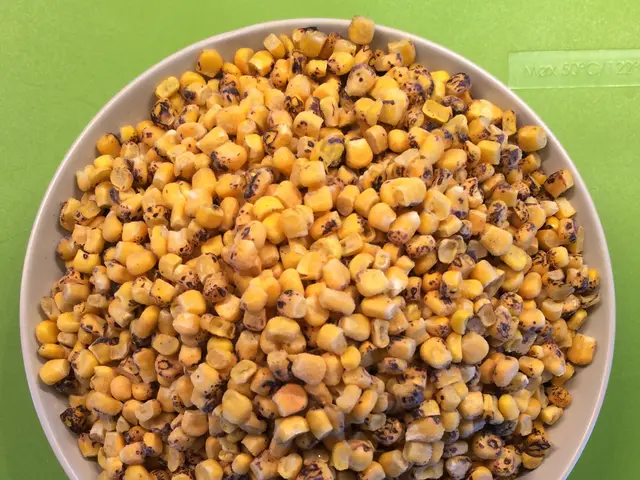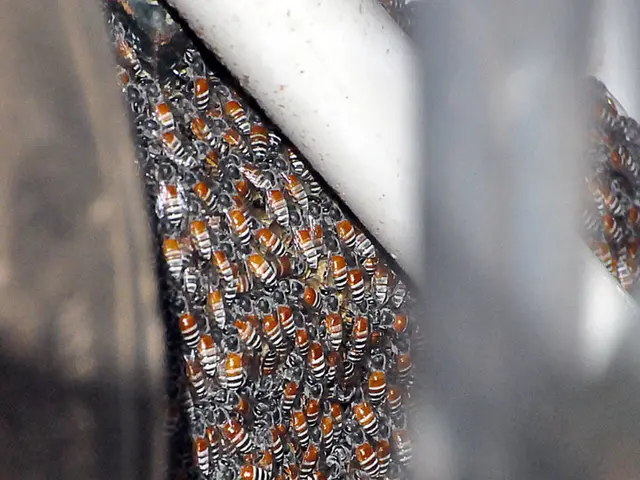Brewing Kombucha Vinegar: A Step-by-Step Guide
Hack Your Kombucha: Turn It into a Powerful Vinegar 🍢🍇
Here's a nifty trick for all you kombucha lovers out there! With this simple recipe, you can transform your leftover kombucha into a versatile and health-boosting vinegar.
Kombucha, a fizzy and slightly tangy fermented tea drink, can easily turn into vinegar given a bit more time. If your kombucha has become too sour for your liking, don't toss it out – instead, transform it into vinegar! This vinegar offers the same benefits as apple cider vinegar while adding the antioxidants from tea and powerful organic acids from fermentation.
In the kitchen, kombucha vinegar can replace any vinegar (cider, white, etc.) and serves as a flavorful base for creating an array of delicious dishes.
Why Is My Kombucha Too Vinegary?
If you've forgotten your kombucha for a bit too long, it will undoubtedly become too sour to drink. During kombucha fermentation, two simultaneous transformations occur: yeasts convert the sugar into alcohol and CO2, while bacteria convert the alcohol into acid. When you stop the fermentation after about a week, you're left with a slightly vinegary, effervescent drink. But if you let the fermentation continue, all the sugar in the kombucha will be turned into acid, resulting in kombucha vinegar!
How to Make Kombucha Vinegar
Difficulty: Easy 🔪🍞Prep Time: 15 minutes ⏱️Fermentation Time: 70 days 🕒
Gear Up
- Wide mouth jar (approximately 4 litres)
- Cloth and rubber band to cover the jar
- Filter
- Bottles
Ingredients
- Kombucha SCOBY and its liquid culture (approximately 350ml)
- Plain tea (6 tbsp.)
- Sugar (1 cup)
- Chlorine-free or filtered water (2.5 L)
Let's Get Started!
Preparation
- Boil 500ml of water and pour it into the jar. Add the tea using tea bags or a nylon filter bag for easy removal later.
- Brew the tea for about 10 minutes, then remove it from the heat.
- Dissolve the sugar in the warm tea.
- Add the remaining water to make a total of 3 litres.
- Add the kombucha SCOBY and its liquid culture to the jar.
- Cover the mouth of the container with a cloth and rubber band.
- Place the jar in an airy spot, avoiding direct sunlight, and let it ferment at room temperature for at least 70 days.
Fermentation
- After 70 days, the scoby will form a new layer and should be removed carefully.
- Strain the kombucha vinegar through a nylon filter to remove any particles.
- Transfer the vinegar to sterilized bottles, leaving about 1cm of space at the top.
- Store the bottles at room temperature. The kombucha vinegar will not fizz during fermentation.
Tips for Better Kombucha Vinegar
To optimize the fermentation of your kombucha vinegar, consider these recommendations:
- Aeration: Oxygen assists the bacteria in turning alcohol into acid, so place your fermentation jar in a well-ventilated area, or consider installing an aquarium air pump for faster fermentation.
- Temperature: Ideal fermentation temperatures range between 25 and 30°C. Lower or higher temperatures will extend the fermentation time but won't affect the end result significantly.
- Time: Let the kombucha vinegar ferment for a sufficient period to convert all sugars into alcohol and acid. A too-short fermentation will leave residual sugars in the vinegar, which can cause fizzing during storage.
- Flavoring: Kombucha vinegar can be flavored similarly to kombucha. If you'd like to add sweet ingredients during flavoring, add them at the beginning of the fermentation process. Kombucha vinegar can also be used as a base for creating berry shrubs; to prevent re-fermentation upon adding sugar, heat the vinegar before use.
With your newfound knowledge, start fermenting and enjoy the delicious and health benefits of homemade kombucha vinegar! 🍽️✨
- Kombucha vinegar, with its antioxidants from tea and organic acids from fermentation, offers benefits similar to apple cider vinegar and serves as a flavorful base for various healthy-cooking dishes in the realm of food-and-drink and lifestyle.
- Incorporating kombucha vinegar into your health-and-wellness routine might involve using it in place of traditional vinegars like cider or white, opening up possibilities for a diverse range of fitness-and-exercise, cooking, and science-backed meals.
- The versatile and nutrient-rich properties of kombucha vinegar make it a valuable addition to both the food-and-drink industry and personal wellness practices, reinforcing its role in promoting a balanced and healthy lifestyle.








